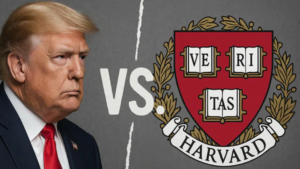Maldives Parliament Brawl: The Maldives Parliament saw a stunning turn of events on January 28, when members of the ruling party and the opposition side interrupted the proceedings. This resulted in an ugly physical confrontation among MPs during the vote on approving President Mohamed Muizzu’s new cabinet.
The opposition MPs’ initial protest against President Muizzu and their inability to enter the parliamentary session set off the mayhem. As legislators from the ruling party attempted to stop the Speaker from leading the important session, tensions increased even further. The main focus of the opposition’s protest is their displeasure with Muizzu, who leads the People’s National Congress (PNC) – Maldives.
The Maldives and India have recently experienced heightened diplomatic tensions due to President Mohamed Muizzu’s demand for the evacuation of Indian military soldiers within a day of his swearing-in.
Three Maldivian politicians made disparaging remarks about Prime Minister Narendra Modi on social media, which made the situation worse. The government of the Maldives suspended three ministers on January 7 after they were criticized for making “derogatory” comments. Furthermore, Muizzu defied convention by choosing China for his first official visit.
President Muizzu greeted India on its 75th Republic Day notwithstanding the disagreement. Highlighting the longstanding ties of friendship and kindred between the two countries.
So, What Exactly Happened at the Maldives Parliament Brawl?

The ruling coalition parties, the PNC, and the PPP, issued a statement characterizing the ministers’ rejection. As a barrier to the provision of public services, according to the Adhadhu report. The PNC Chairman and Chief Advisor to Muizzu, Abdul Raheem Abdullah, asserted that the ministers’ entitlement to be reappointed applies even in cases where they are not authorized.
He called the ministers’ unwillingness to receive approval carelessly. Recently, the two opposition parties in the Maldives voiced their disapproval of the current leadership due to its “stark” tilt towards India. In a joint press release, the Democrats and the Maldivian Democratic Party (MDP) described the change in foreign policy from India. To China as “extremely detrimental” to the long-term growth of the nation.
The statement issued by the opposition parties reaffirmed their conviction that ‘alienating any development partner. Especially the nation’s longest-standing ally will be immensely detrimental to the country’s long-term development. Moreover, the Opposition emphasized that “the stability and security of the Maldives depend on stability and security in the Indian Ocean.”
The ability of succeeding administrations to “work with all development partners for the benefit of the people of the Maldives. As the Maldives has traditionally done” was underlined by both the MDP and the Democrats.







Be First to Comment